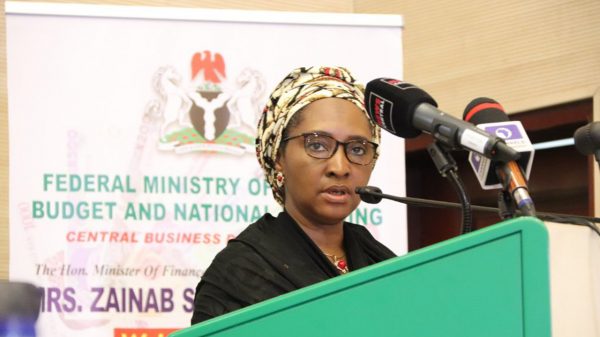Nigeria must end reliance on oil to fight poverty – IMF
 The Managing Director of the International Monetary Fund, Ms Kristalina Georgieva, has said that there is a need for the Federal Government to diversify the economy from the oil in order to reduce the level of economic vulnerabilities currently facing the country.
The Managing Director of the International Monetary Fund, Ms Kristalina Georgieva, has said that there is a need for the Federal Government to diversify the economy from the oil in order to reduce the level of economic vulnerabilities currently facing the country.
Georgieva, who said this at the World Bank/IMF annual meetings holding in Washington DC, United States, explained that the level of economic growth in the country was too slow to reduce its poverty rate.
She said the global body had understood how important Nigeria is to the economy of Africa, adding that this was why it had consistently advised the need for a major improvement in the fiscal space particularly in relation to revenue, economic diversification and corruption.
In the area of revenue, she said, “Nigeria matters to the whole of Africa. When Nigeria does well, Africa does well. What we see however is that economic recovery remains still too slow to reduce vulnerabilities and most importantly to reduce poverty in the country.
“What we experience is some good thought around shaking up economic policy now that a government is being constituted in Nigeria.
“We have been quite consistent to talk about three issues in Nigeria. One is the question of fiscal capacity. As you know, the tax collection levels in Nigeria leave quite a lot of room for improvement and without strengthening the fiscal position of the government, the expenditure side of course would suffer.”
She said the IMF had always recommended an increase in tax revenue to Gross Domestic Product to 15 per cent, adding that at this level, the government would be able to finance its programmes.
Nigeria’s tax revenue to GDP ratio currently hovers between seven and eight per cent.
In the area of economic diversification, Georgieva said, “We have been consistently recommending the country to diversify the economy because reliance on oil does not serve very well and that means to continue with structural reforms that would make that possible.”
On the fight against corruption, she said there was a need for a strong anti-corruption policy that would be unambiguous.
She said, “Fight corruption and make sure that the richness of Nigeria serves Nigerians inside the country and in that regard, the Fund last year adopted a very clear, strong policy on anti-corruption.
“We engaged with governments to build their capacity to make serving the citizens of the country with the money of the country possible.”
On the global front, she said with the right mix of policies and structural reforms, countries could unleash economic growth.







